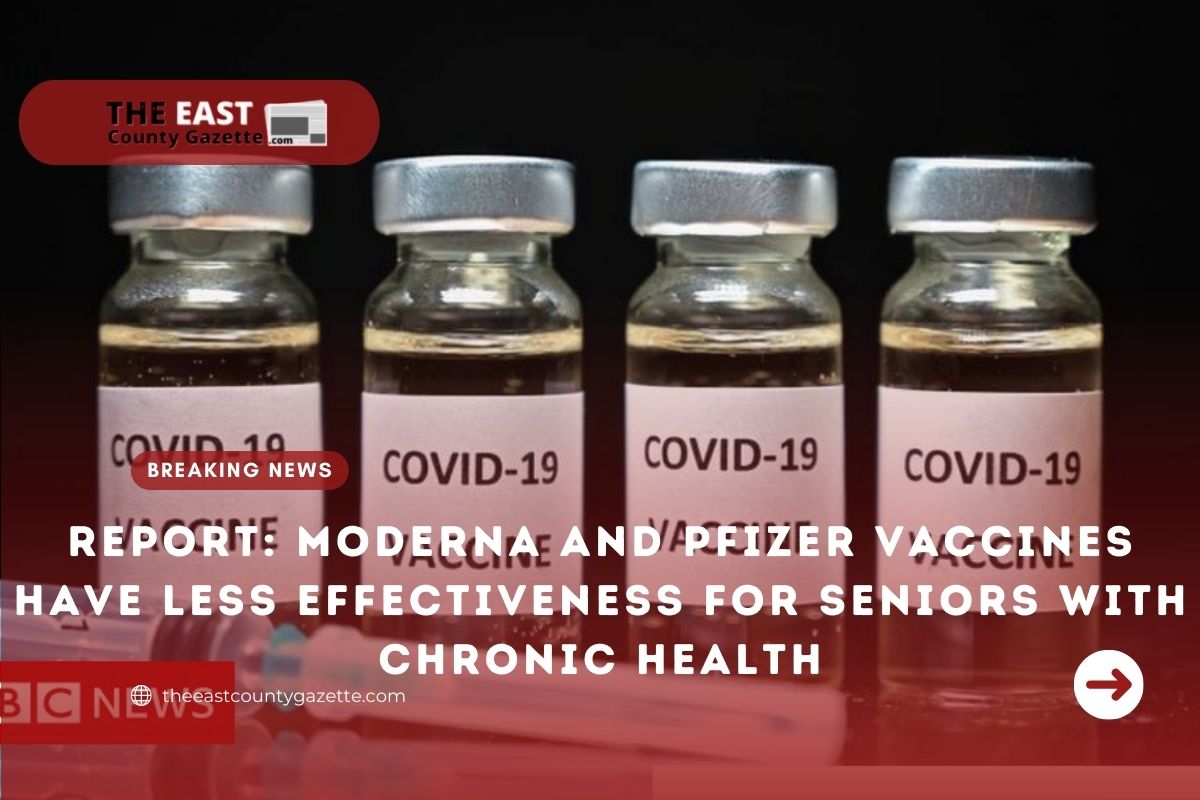An Annals of Internal Medicine study published on Monday found that the COVID-19 vaccines made by Moderna and Pfizer BioNTech are less effective at protecting older, less healthy adults from the virus.
Nonetheless, they prevented the majority of older recipients from suffering severe illness or death from the virus, the data showed.
As reported by UPI, Seniors who received either of the two-dose shots were protected against infection by 69% of the time within seven days after the last inoculation, researchers said. The number is lower than the nearly 90% reported in previous studies.
In spite of this, the researchers found that 86% of vaccine recipients were protected from death against the virus up to three months after their second dose.
“Vaccine effectiveness against infection is only around 69% during longer follow-up after vaccination in an elderly population, which is much lower than vaccine effectiveness levels previously reported,” Dr. George Ioannou told UPI via text message.
“To me, this means two things: First, we have to strive to achieve even higher levels of vaccination in the population and, second, even with high levels of vaccination, additional infection mitigation efforts remain necessary,” Ioannou, a professor of gastroenterology stated.
Moderna and Pfizer-BioNTech vaccines were found to provide 90 percent protection against COVID-19 infection in clinical trials.
According to the Centers for Disease Control and Prevention, both contain similar formulations and should be taken twice per day for maximum protection.
Currently, the CDC suggests booster doses six months after the second shot.
Ioannou and his team at the Veterans Affairs Puget Sound Health Care System conducted this study to measure the rates of COVID-19 infections and deaths among 2.1 million U.S. military veterans given just one dose of the two-shot vaccine between Dec. 11 and March 25.
According to them, they compared the data with a similarly-sized group of unvaccinated veterans.
The CDC reported that the more contagious and lethal Delta variant predominated in the United States as of June 30, when the study participants were tracked.
In the study, just over 92% of participants were men, and the majority were between 65 and 79 years of age. Researchers noted that most were overweight, or severely overweight, and many of them were obese.
Read More: US Justice Department: Inmates Sent Home Due to Covid-19 Will Not Return to Jail
The study showed that approximately a third of the participants had diabetes, 12 percent had chronic kidney disease, 5 percent had severe heart disease, and 15 percent had the chronic obstructive pulmonary disorder, according to the data.
The CDC reports that people with any of these chronic problems are more likely to contract COVID-19.
Participants ages 18 to 64 were protected against infection by 75% after two-dose vaccines, while those ages 65 to 74 were protected by 72%.
A second dose, however, provided 61% protection against infection to participants 75 years and older. Researchers also found less than 70% protection for those with two or more chronic health conditions.
All age groups are protected from COVID-19 death by up to 89 percent with the vaccines, but people with two or more chronic health conditions had slightly less protection.
After the Omicron strain emerged, and before the potentially more contagious Delta strain emerged, researchers had measured this vaccine’s effectiveness.
The researchers mentioned that even after vaccination, additional prevention measures such as masking and social distancing may be required to prevent infection from COVID-19.
“The emergence of the Alpha, then Delta, and now Omicron variants demonstrates that the only constant thing about the COVID-19 pandemic is that it is constantly changing,” Ioannou said.
“New variants tend to have higher transmissibility, and therefore, we will need to continue to emphasize masking, physical distancing, screening, and contact tracing, including among vaccinated persons,” he said.

